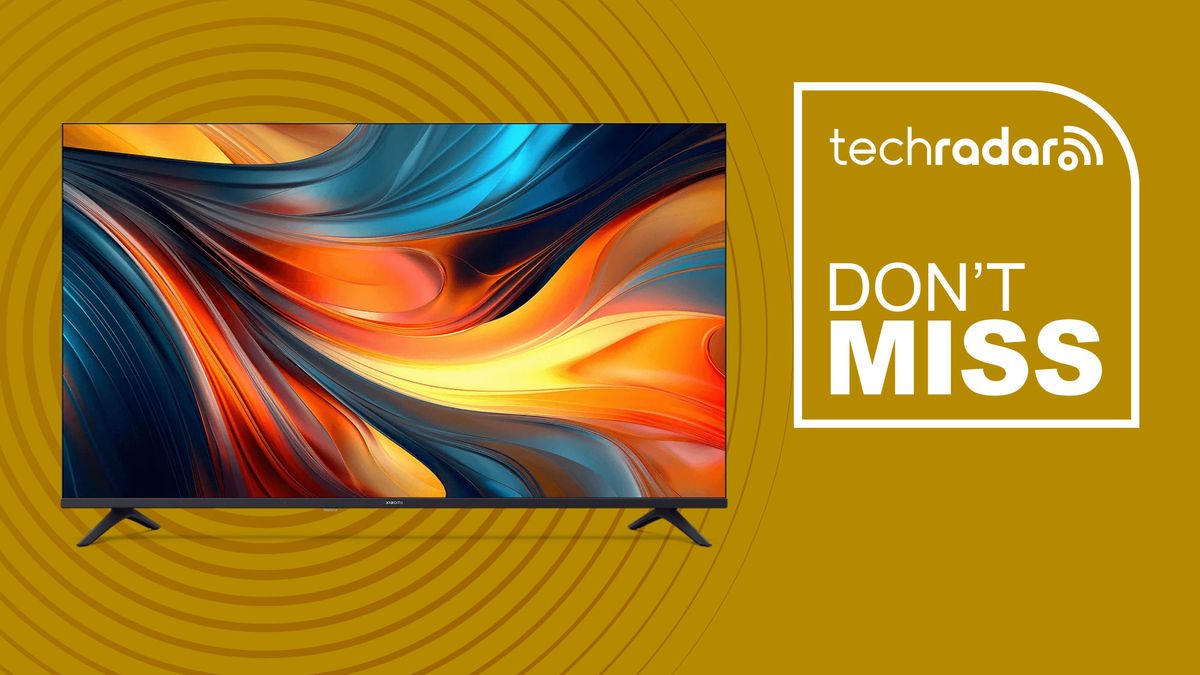Until I started playing sports regularly, I didn't know that hydration is more than drinking water. When you sweat, you lose essential minerals called electrolytes (sodium, potassium, magnesium, calcium), and replenishing them is vital because they keep pH levels balanced and regulate nerve function and muscle contractions (to prevent cramping) while also keeping us hydrated.
- The Best Electrolyte Powders and Drinks, According to Experts
- What to consider
- Best electrolyte powders and drinks overall
- Best electrolyte powders and drinks, according to experts
- Best Electrolyte powders and drinks compared
- How we chose the best electrolyte powders and drinks
- Factors to consider when choosing the right electrolyte powders and drinks
- Precautions to take with electrolyte powders and drinks
- Best electrolytes FAQ
Now, to replenish electrolytes, you would have to eat hydrating foods like watermelon, squash, cucumbers and strawberries, among others. However, another way you can add back electrolytes is by relying on electrolyte powders and drinks. These can be difficult to pick from since the FDA doesn’t regulate dietary supplements before they’re on the market.
But the good news is that we had a few experts weigh in on the best electrolytes you should have on hand in the middle of a heat wave, when you’re training for hours at a time or if you simply want to stay on top of your hydration. Below are their recommendations, plus some other things to keep in mind when selecting an electrolyte powder or drink.
Best electrolyte powders and drinks overall
Gatorade is the best overall pick because of how well-balanced the electrolytes and carbohydrates are in this sports drink. It was specifically designed for those who exercise vigorously and need to replenish their energy sources quickly.
Best electrolyte powders and drinks, according to experts
The best overall electrolytes for athletes are sports drinks like Gatorade and Powerade. According to Rayven Nairn, senior dietitian for student health and well-being at Johns Hopkins University, these beverages are ideal because they’re well-balanced.
“They hit hydration, energy and electrolyte targets,” she says. Sports drinks are a good option if you are an athlete or engage in vigorous physical activity for more than an hour. Drinks like this were developed to not only help you replenish any minerals lost but to also include carbohydrates, which are the body’s primary source of energy. This is what helps athletes keep going during a race or other endurance sport.
If you’re in a pinch and need an electrolyte drink, Pedialyte is another good option. Although it’s a common rehydration beverage people drink when they’re sick or hungover, it’s just as good for active individuals. It comes in premixed, dry packet types and even freezer pops. Pedialyte contains sodium, potassium and chloride electrolytes.
Nairn says she recommends Pedialyte to her athletes who exercise for periods extending 60 minutes since it's enough to replenish any electrolytes lost. One thing to keep in mind is that Pedialyte tends to have less sugar than a traditional sports drink, so if you’re working out vigorously and need a quicker boost, you may prefer to opt for the sports drink instead.
Nuun is a popular electrolyte powder tablet that is recommended for athletes. It’s sold in a tube and contains round tablets that dissolve in water. It comes in a variety of flavors, is vegan and gluten-free and also has a caffeinated version. Wendell Albarran, an ISSA-certified fitness expert and nutritionist at Real Elevate Fitness, says, “Some of my favorite electrolyte supplements include Nuun Sport for its balanced electrolytes and ingredients, making it great for everyday athletes.”
Cassandra Padula Burke, a registered dietitian nutritionist, certified endurance coach and owner of Catalyst Performance Lab in Finksburg, Maryland, also likes Nuun because it’s a complete hydration option. “It has sodium, potassium, calcium and magnesium and is a great option for activities lasting less than an hour,” Burke says. Because of its portability, it’s an ideal electrolyte drink if you’re training for a marathon or triathlon and need to give your water a boost during a training session.
Liquid I.V. is another favorite that comes in a variety of flavors, is dairy-free, vegan and gluten-free and even has sugar-free options. It’s an electrolyte powder that comes in individual packets, so you can carry it while traveling or to the gym. Burke says this is another one of her go-to recommendations for athletes who work out for more than an hour. If you’re not active or simply want to flavor your water, the sugar-free Liquid I.V. packets are a great option. The brand regularly comes out with new flavors -- with their latest being cotton candy and rainbow sherbert.
If you’re a salty sweater -- as in you sweat excessively and a white residue visibly develops on your clothing or skin -- you require sodium replenishment as quickly as possible. It’s helpful to have an electrolyte like LMNT by your side. LMNT is a sugar-free electrolyte powder intended to help replenish essential electrolytes for those who excessively sweat. It’s also suitable for those on low-carb, keto and paleo diets. Burke says this electrolyte is appropriate for endurance athletes and salty sweaters. For reference, one packet has 1,000 milligrams of sodium. You can buy these powder electrolytes by signing up for a subscription or a one-time purchase.
Best Electrolyte powders and drinks compared
| Calories per serving | Carbohydrates | Sodium | Sugar | Price |
| 80 | 22 g | 160 mg | 21 g | $10 |
| 40 | 10 g | 370 mg | 9 g | $6 |
| 15 | 4 g | 300 mg | 1 g | $6 |
| 50 | 13 g | 500 mg | 11 g | $9 |
| 10 | 2 g | 1,000 mg | 0 g | $9 |
We consulted with dietitians who work with the general public and athletes for their recommendations. We took into consideration that both athletes and less active individuals could benefit from electrolytes.
Carbohydrates
First, it’s important to know what you should be looking for on the nutritional label. Gabriela Barreto, a registered dietitian and sports nutritionist says, “what research shows for optimal and rapid rehydration is the addition of carbohydrates into the electrolyte mix.” This is because carbs are more rapidly absorbed into the bloodstream and, as a result, rehydrate your cells more efficiently. Most brands have between 10 to 20 grams of carbs in their formulas. Other ingredients you should look for include magnesium, potassium, calcium and sometimes chloride since they’re all also electrolytes, Albarran advises.
Sodium
Most importantly, you want to focus on sodium because it’s the primary electrolyte lost through sweat. The amount of sodium you will need depends on how much you sweat and how much sodium you lose when you sweat. “The average loss of sodium is 950 mg per liter of sweat, but this can range from 200 to 2,000 mg of sodium depending on the person,” Barreto says. She adds that most quality electrolyte brands range from 300 to upward of 1,500 milligrams of sodium.
You can also calculate your sweat rate at home by following this CDC-approved formula. Other methods may include using a sweat patch, but it’s essential to know that some methodologies may provide inconsistent results, so bear in mind these are estimates. The sweat test, which reads the level of chloride in sweat, is the most accurate method when done correctly and in a lab. Generally, children with cystic fibrosis have a sweat test done to get a diagnosis since those with CF have higher levels of chloride in their sweat.
Physical activity
If you're an active gym goer or athlete, you’ll want to make sure you’re prioritizing replenishing electrolytes and carbohydrates. “An indicator of increased electrolyte needs would be cravings post-exercise and/or headaches, muscle cramping, lightheadedness and fatigue,” Nairn says. “I usually recommend looking for supplements that provide higher amounts of sodium and potassium, which are more readily lost during exercise through sweat.” For athletes, Barreto recommends sticking to electrolytes with 500 to 1,000 milligrams of sodium. “Some of the higher sodium brands do not contain carbs, which athletes training longer than one hour will need an alternative carb source for fueling purposes as well,” Barreto advises.
Sugar
If you’re looking to add electrolytes to your water but aren’t generally active, Barreto suggests choosing a sugar-free electrolyte with sodium less than 300 milligrams. “While carbs help with optimal rehydration, that's more important for heavy sweaters who are actively performing,” she explains. In this case, sugar-free options are suitable for those who don’t exercise but like adding electrolytes to their water. “Those engaging in moderate to intense exercise should avoid sugar-free options because sugar is necessary post-exercise for energy replenishment,” Nairn says.
Pregnancy
Pregnant patients may want to consider paying attention to their electrolyte levels. This can be because of hormonal changes, increased blood volume, morning sickness and higher sweat rates, especially if they are active. If you are pregnant and concerned about your sodium levels, see your health care provider.
People with specific health conditions like hypertension, kidney disease or heart disease should consult with a health care provider to determine appropriate sodium levels. Nairn explains that certain medications like diuretics, which are commonly prescribed to those with edema or kidney issues, can cause electrolyte imbalances. “Diuretics can impact sodium, potassium and magnesium,” she explains, adding that “angiotensin-converting-enzyme inhibitors, which are used to reduce blood pressure, can also affect this because they can result in high potassium.”
Although there are many powder and drink options on the market for electrolytes, you should still be mindful of how much you consume daily. Nairn and Barreto advise consulting with your health care provider regarding your personal needs. If you do add electrolyte powders to your drinks and enjoy the taste, it’s important to avoid overdoing it. In some circumstances, having too many electrolytes can cause nausea, diarrhea, stomach pain, cramping, bloating or gas. It is usually uncommon, but electrolytes can disagree with some individuals. “These symptoms can vary in intensity based on the individual's sensitivity and the specific electrolyte supplement used,” explains Nairn.
One of the health risks to consider if you over-consume electrolyte products is excessive sodium intake. This can present itself in edema (water retention) and hypertension (high blood pressure). “Acute toxicity is of little concern because once water needs are met, the kidneys can handle the rest, but sustained overconsumption can lead to chronic hypertension,” Nairn says. Those with a history of heart failure and/or kidney disease have to be particularly careful about their potassium and sodium intakes.
Other things to consider are excessive potassium intake, which can lead to cardiac arrest, and excessive chloride intake, which can result in water-deficiency dehydration, but this is rare. Nairn says most of these scenarios are unlikely in healthy individuals, but they’re still helpful to keep in mind.
If you're considering consuming electrolyte powders and drinks, consult with your doctor to ensure that you’re selecting one that is suitable for your needs.
Electrolytes are essential minerals that include sodium, magnesium, potassium and calcium, which are necessary for your body to function properly. Dehydration can cause you to lose electrolytes if they aren’t replenished right away.
Yes, electrolytes powders and drinks hydrate better in some cases, like during vigorous exercise or physical activity lasting longer than an hour.
Yes, overdoing it on electrolyte powders and drinks can lead to dizziness, fatigue, nausea and more. Remember, it’s a supplement and meant to be used in conjunction with a healthy diet.








 English (US) ·
English (US) ·